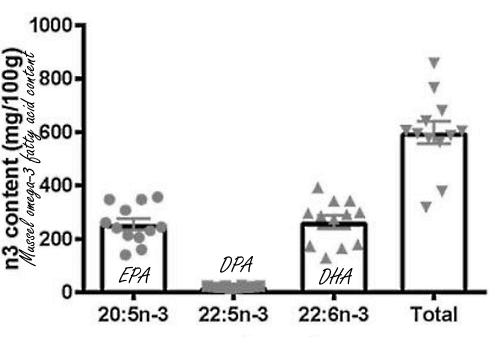Don't like fish? Mussels are also a source of omega-3 fatty acids
Do you want to get more omega-3 fatty acids through whole foods, while you are not fond of fatty fish such as salmon, mackerel and herring? According to Scottish scientists, mussels are also an excellent source of DHA and EPA.
[FONT="]
[/FONT]

[FONT="]
[/FONT]
Study
Researchers from Deakin University in Scotland gave 12 test subjects a lunch containing at least 80 grams of mussels 3 times a week for two weeks.
The researchers measured the amount of omega-3 fatty acids in the mussels and discovered that they contain about half a gram of DHA plus EPA per 100 grams. The subjects therefore consumed approximately 400 milligrams of EPA plus DHEA per mussel lunch.
[FONT="]
[/FONT]

[FONT="]
[/FONT]
According to many nutritionists, people should consume at least 250 milligrams of omega-3 fatty acids daily. In theory, the mussel meals should be able to help meet that intake.That would work out well, the researchers write. Mussels also contain high-quality proteins, important trace elements and vitamins. 85 grams of mussels provide about 20 grams of protein, the recommended daily intake of selenium, and three times the daily recommended intake of vitamin B12.
Moreover, mussels have a low environmental footprint. [Nutrients. 2021 Mar 29;13(4):1124.]
Results
After two weeks, the concentration of DHA and EPA in the subjects' blood had increased noticeably.
[FONT="]
[/FONT]

[FONT="]
[/FONT]
Conclusion
"Replacing the protein component of lunchtime meals three times per week for two weeks with mussels is sufficient to moderately improve omega-3 status", summarize the researchers. "For some subjects, the improvements in omega-3 status were of a magnitude that is clinically relevant, corresponding to a reduction in the risk of sudden cardiac death."
"Although an apparently good source of EPA and DHA, mussels appear to be a poor source of DPA, so other feeding strategies would be required to enhance DPA status."
Source:
Nutrients. 2019 Jun 19;11(6):1381.
Do you want to get more omega-3 fatty acids through whole foods, while you are not fond of fatty fish such as salmon, mackerel and herring? According to Scottish scientists, mussels are also an excellent source of DHA and EPA.
[FONT="]
[/FONT]

[FONT="]
[/FONT]
Study
Researchers from Deakin University in Scotland gave 12 test subjects a lunch containing at least 80 grams of mussels 3 times a week for two weeks.
The researchers measured the amount of omega-3 fatty acids in the mussels and discovered that they contain about half a gram of DHA plus EPA per 100 grams. The subjects therefore consumed approximately 400 milligrams of EPA plus DHEA per mussel lunch.
[FONT="]
[/FONT]

[FONT="]
[/FONT]
Moreover, mussels have a low environmental footprint. [Nutrients. 2021 Mar 29;13(4):1124.]
Results
After two weeks, the concentration of DHA and EPA in the subjects' blood had increased noticeably.
[FONT="]
[/FONT]

[FONT="]
[/FONT]
Conclusion
"Replacing the protein component of lunchtime meals three times per week for two weeks with mussels is sufficient to moderately improve omega-3 status", summarize the researchers. "For some subjects, the improvements in omega-3 status were of a magnitude that is clinically relevant, corresponding to a reduction in the risk of sudden cardiac death."
"Although an apparently good source of EPA and DHA, mussels appear to be a poor source of DPA, so other feeding strategies would be required to enhance DPA status."
Source:
Nutrients. 2019 Jun 19;11(6):1381.


